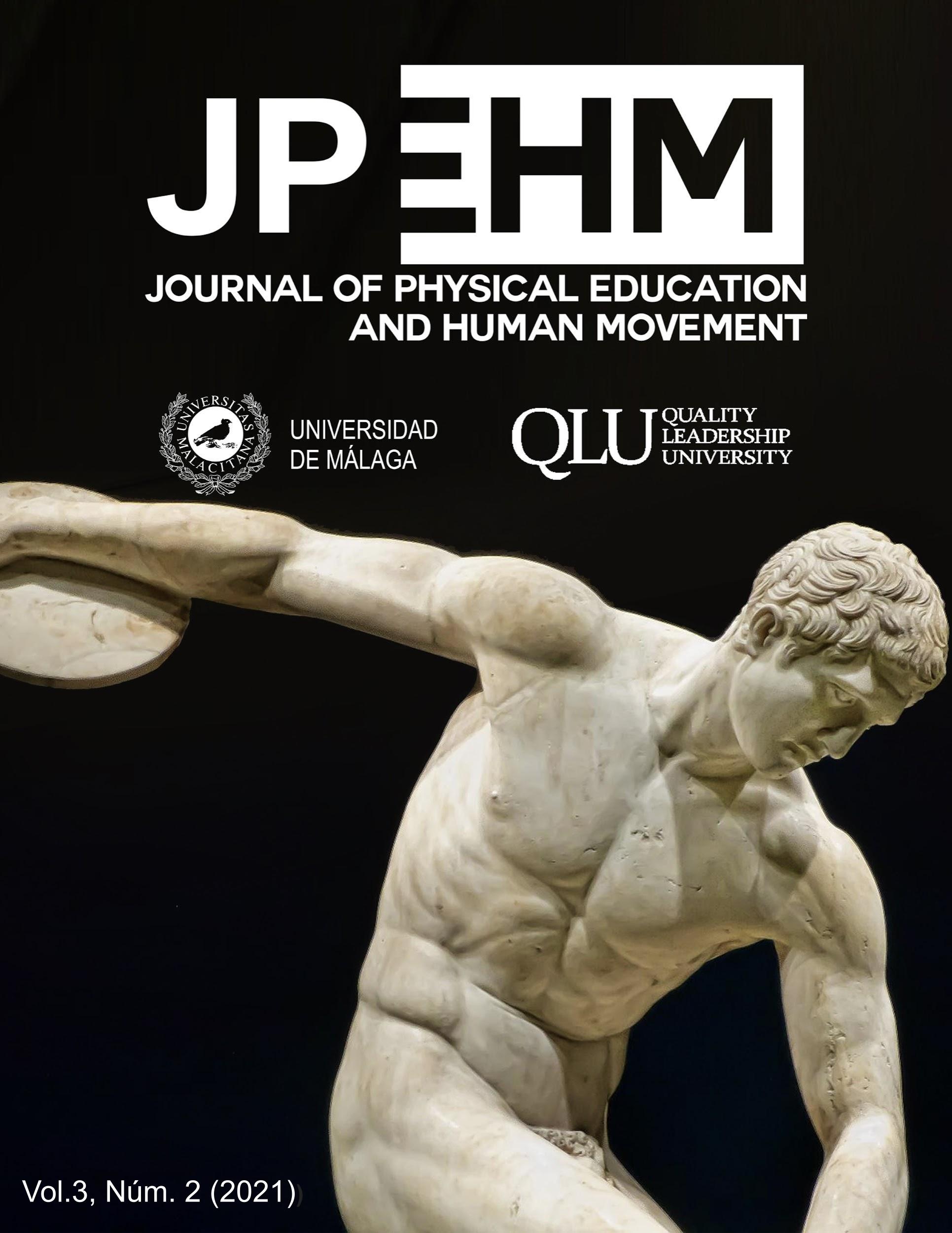Sports federations and associations in Mexico: justification and legal order
DOI:
https://doi.org/10.24310/JPEHMjpehmjpehm.v3i213023Keywords:
Law, Constitution, Sports Federations, Sports LawAbstract
Introduction: The practice of sports in Mexico is carried out in abundance at different levels, from popular to high performance or professional. The very nature of sports tends to be associated with proper practice, and since it is a right recognized in the Mexican Constitution, it needs a legal figure to regulate the activities of each sport according to international guidelines. By virtue of this need, the National Sports Associations were born. The National Sports Associations, also known as Federation, are the main technical authority of each sport in Mexico, with a dual legal nature. That is to say, of private or civil origin but which carry out activities and receive resources of a public nature, having to be reviewed under jurisdictional scrutiny. Objective: The purpose of this article is to analyze the legal nature and constitutional origin of National Sports Associations or Sports Federations. According to the General Law of Physical Culture and Sports, they have a public and private function within the development of national sports. Likewise, the definition of the National Sports System (SINADE) will be studied briefly and concisely. Methodology: A descriptive study of this legal figure is carried out, pointing out its constitutional justification, to then continue with the generalities, context and relevance within the functioning of Mexican sports. Results: The national sports associations are the highest technical authority of each sport, in accordance with the General Law of Physical Culture and Sports, and they are also part of the private sector. However, they cooperate with the State in the promotion of the adequate exercise of the right to sport and other values linked to it, so that such action is considered of public utility. Conclusions: The actions of the national sports associations must always be correct, because despite being of a private nature, they are collaborating agents of the State and in this way, and according to the Jurisprudence, they are a responsible authority for administrative purposes and in the amparo trial.
Downloads
Metrics
References
Arteaga, E. (2014). Derecho Constitucional. México: Oxford. p.2
Carbonell, M. (2012) Los derechos fundamentales en México, México, Porrúa. p 480
Cervantes, M. (1614). Segunda Parte del Ingenioso Caballero Don Quijote de la Mancha. Estados Unidos de América: Vintage Español. pp. 833 y 834.
Coaña, L. (2019). El Juicio de Amparo. México: Tirant Lo Blanch. p. 40
Constitución Política de los Estados Unidos Mexicanos, Diario Oficial de la Federación, México, 5 Febrero 1917.
Fuertes Lo?pez, M, (1992). Asociaciones y Sociedades Deportivas, Espan?a.
Gamero Casado, Eduardo. (2012) Fundamentos de derecho deportivo, E d. Tecnos, España, , p. 59
Gonza?lez Guerrero, N. (2018). Re?gimen juri?dico de la Comisio?n de Apelacio?n y Arbitraje del Deporte de Me?xico y una propuesta de mejora. Universidad de Lleida, Espan?a.
Hernández González, D. (2014) Derecho del Deporte, México, Editorial Flores.
Hernández González, D. (2018) Asociaciones y sociedades Deportivas, México, Editorial Porrúa.
Muñiz Dominguez, P. (2015). Las asociaciones deportivas nacionales como agentes colaboradoras del gobierno federal, México, Revista Académica de la Facultad de Derecho de la Universidad La Salle, pp. 145-161 https://bit.ly/3wwyMUX
Muñiz Dominguez, P., (2020, 19 de junio). Derechos de los deportistas: ¿cuáles son en México, Journey App, Recuperado de: https://bit.ly/3xChUxx
Ley General de Cultura Fi?sica y Deporte, Diario Oficial de la Federacio?n, Me?xico, 7 de junio de 2013.
Pachot, K., (julio 2016). El Derecho Constitucional Al Deporte En La Doctrina y El Derecho Comparado. Cuestiones Constitucionales Revista Mexicana de Derecho Constitucional, Núm. 35, p. 8.
Pe?rez Trivin?o, J. (2019). Resolucio?n de conflictos en el deporte: ana?lisis y propuestas. Madrid, Editorial Reus.
Scheines, G; Parlebas, P; Lapierre, A. (1993). Problemas del juego en la Educación Física. Mesa redonda. 1er Congreso Argentino de Educación Física y Ciencias, La Plata,Argentina,. p. 396. https://bit.ly/39SOrX7
Vega, P; Pérez-González, B; Fernández-Luna, A; Burillo, P. (2019). Diversidad de género en las juntas directivas de federaciones deportivas: resultados económicos y operacionales, Apunts. Educación Física y Deportes, n.º 137, 3.er trimestre (julio-septiembre), pp.115-128 https://bit.ly/3xfbowp
Jurisprudencias:
Suprema corte de justicia de la nación, (2016)ASOCIACIONES DEPORTIVAS NACIONALES. REALIZAN ACTOS EQUIVALENTES A LOS DE AUTORIDAD PARA EFECTOS DEL JUICIO DE AMPARO CUANDO EJERCEN LA POTESTAD DISCIPLINARIA, PORQUE SON LA MÁXIMA INSTANCIA TÉCNICA DE SU DISCIPLINA Y REPRESENTAN A UN SOLO DEPORTE EN TODAS SUS MODALIDADES Y ESPECIALIDADES.” Registro digital: 2012248, Tesis: PC.I.A. J/79 A (10a.), Gaceta del Semanario Judicial de la Federación, Décima Época, Plenos de Circuito, Jurisprudencia, Libro 33, agosto de 2016, Tomo III, página 1382. https://bit.ly/3huTJLG
Suprema corte de justicia de la nación, (2020) DERECHO HUMANO A LA CULTURA FÍSICA Y A LA PRÁCTICA DEL DEPORTE. SI LA EXPEDICIÓN DE LA REGLAMENTACIÓN TÉCNICA DEPORTIVA IMPLICA DISCRIMINACIÓN U OPACIDAD QUE LO IMPIDA, COBRAN VIGENCIA LOS DERECHOS FUNDAMENTALES EN LAS RELACIONES ENTRE PARTICULARES EN SU EJERCICIO” Registro digital: 2021410, Tesis: XVII.2o.C.T.3 CS (10a.), Gaceta del Semanario Judicial de la Federación, Décima Época, Tribunales Colegiados de Circuito, Aislada, Libro 74, enero de 2020, Tomo III, página 2564. https://bit.ly/3yOXhOT
Downloads
Published
How to Cite
Issue
Section
License
Aquellos autores/as que tengan publicaciones con esta revista, aceptan los términos siguientes:
- Los autores/as conservarán sus derechos de autor y garantizarán a la revista el derecho de primera publicación de su obra, el cuál estará simultáneamente sujeto a la Licencia de reconocimiento de Creative Commons que permite a terceros compartir la obra siempre que se indique su autor y su primera publicación esta revista.
- Los autores/as podrán adoptar otros acuerdos de licencia no exclusiva de distribución de la versión de la obra publicada (p. ej.: depositarla en un archivo telemático institucional o publicarla en un volumen monográfico) siempre que se indique la publicación inicial en esta revista.
- Se permite y recomienda a los autores/as difundir su obra a través de Internet (p. ej.: en archivos telemáticos institucionales o en su página web) antes y durante el proceso de envío, lo cual puede producir intercambios interesantes y aumentar las citas de la obra publicada. (Véase El efecto del acceso abierto).







15.png)
